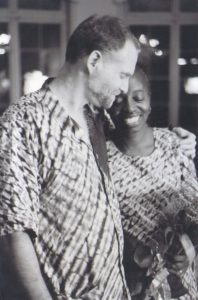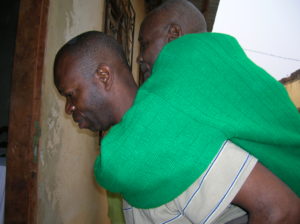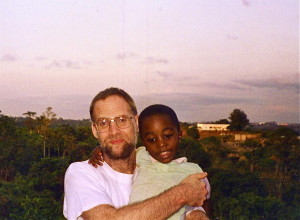Impossible Love (our newest book) is about God’s heart, but it’s also a true story of war, refugees, romance, adventure—and it’s the easiest of my books to read! Many who’ve read it have testified how deeply it’s touched them (e.g., J. P. Moreland, Rolland and Heidi Baker, J. Warner Wallace, Timothy Tennent, Frank Viola, George Wood).
http://www.amazon.com/Impossible-Love-African-Miracles-against/dp/0800797779
 The book is our story, including Médine’s experience as a war refugee during the war in Congo
The book is our story, including Médine’s experience as a war refugee during the war in Congo
“This book is powerful and unlike any other you’ve read.”—Nabeel Qureshi, best-selling author
“a story that will grip and strengthen every hungry heart”—Rolland and Heidi Baker, Iris Ministries
“a testimony to the power, faithfulness and glory of the living God”—Dr. R. T. Kendall
“an epic story … I received a fresh revelation of the Heavenly Father’s patient long-suffering love. Everybody should read this and pass it on”—John Dawson, President Emeritus, Youth With A Mission
“What happens when the world’s greatest New Testament scholar pens his incredible story with his wife in riveting prose”—Frank Viola, best-selling author
“… a narrative filled with danger, courageous seeking of and standing for God in the midst of great … hardship”—JP Moreland, Biola University
“an open and welcoming window into God’s grace that leaves the reader cheering”—George O. Wood, General Superintendent, Assemblies of God
“changed my perspective on the power of God in the lives of His people”—Mary DeMuth, author of Worth Living
“What an incredible story! This amazing book by Craig and Medine Keener is a real page-turner”—Dr. Michael L. Brown, host of the nationally syndicated daily radio show The Line of Fire
“biographical testimony at its best because it is not merely a story of two people, but the story of God’s prevailing work in our lives”—Timothy C. Tennent, President, Asbury Theological Seminary
“one of those rarest of books which inspired me to pray to want to know and love God better”—Rich Nathan, author and senior pastor, Vineyard Columbus
“Be ready to experience a real life story more incredible than any work of fiction; you’ll be inspired and encouraged”—J. Warner Wallace, Cold-Case Detective
“It has it all; conflict of civil war, danger, love, friendship, faith, miracles, deliverance supernaturally, and the presentation of the faithfulness of God”—Randy Clark, Overseer of Global Awakening




